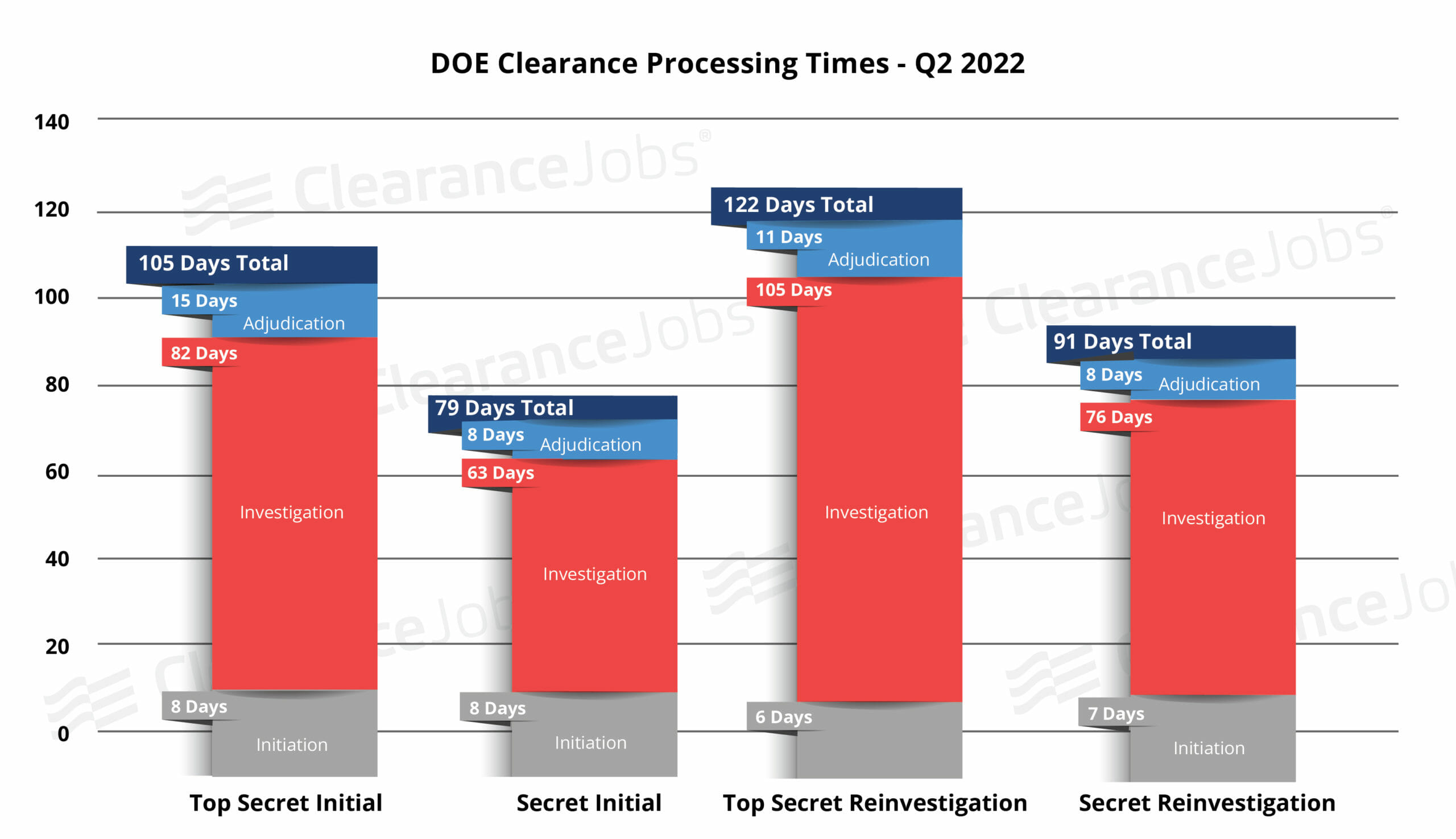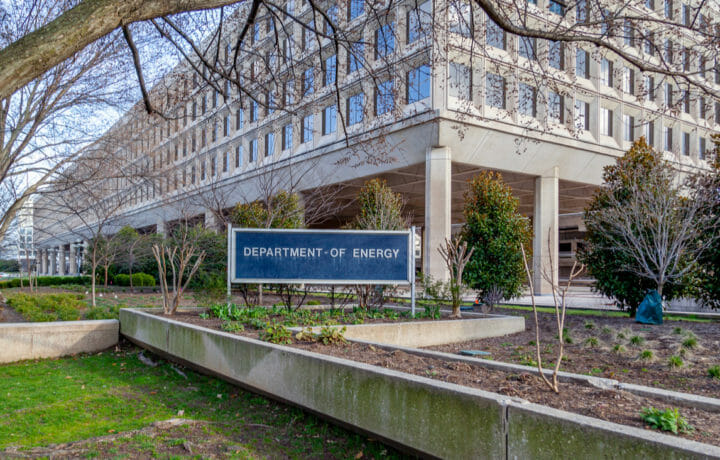Recently, the Department of Energy (DOE) shared their timeliness performance metrics for security clearance processing times. The DOE reported initial adjudication actions for 2,718 Top Secret and Secret clearances in the second quarter of fiscal year 2022, which is a decrease from prior quarters. The overall average days for the fastest 90% of clearance decisions was 99 days. Top Secret, of course, averaged higher, and Secret averaged lower. The investigation phase for both initial and reinvestigations continues to take the longest time.
Department of Energy FY22 Q2 Processing Times
The chart below shows the processing times for the DOE’s Fiscal Year (FY) 2022 2nd quarter for a Top Secret and Secret clearance. DOE Top Secret initial clearances took a total of 105 days, and TS Reinvestigations averaged 122 days in Q2 FY22. DOE Secret initial clearances averaged 79 days – the lowest it the department has reported in the past year. Secret Reinvestigations averaged 91 days. The average for reinvestigations generally trends higher than an initial clearance.

DOE Reciprocity with the DoD
While the DoD has a corner on the market for security clearances, other departments and agencies, of course, have classified work too. Although the nuclear program requires a clearance, so do other energy programs. Ideally, when reciprocity functions as intended, a final Secret Clearance would translate to an L access authorization, and final Top Secret clearance with the DoD should translate to a job at the DOE with a Q access authorization.
It wouldn’t be working in the federal government if we didn’t have different terms for the seemingly the same thing. But, the DOE notes that different terms are needed because the department is granting access to Restricted Data and special nuclear material. In order to make the differences in classified information really clear, the DOE uses different terminology: Q for Top Secret and L for Confidential and Secret. However, should a clearance holder require access to Secret Restricted Data, DOE grants a Q access authorization.




